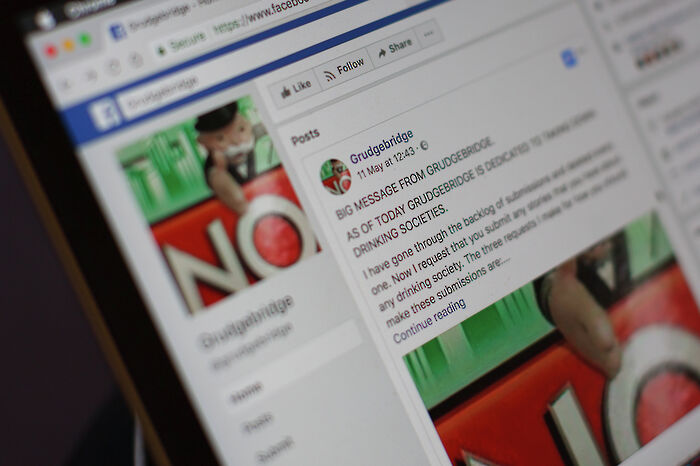Drinking societies: the next chapter
The end of the year doesn’t mark the end of the ongoing debates about drinking societies and sexual misconduct. Some students reflect on the debate so far, and consider what comes next
‘Maybe we can work towards a different drinking culture in our University’
Well before they hit the headlines, drinking societies had been an issue for me. They had a very powerful presence in my college and I was interested enough to write my dissertation on drinking societies and masculinity. I argued that because drinking societies see themselves as “fun”, they are able to dismiss criticisms, as (in Sara Ahmed’s words) being a “killjoy”.
This term Grudgebridge has provided a unique opportunity in which critique is taken seriously. That said, I think if this moment is going to last, feeling needs to be channelled in a more productive direction. If we start with this year’s freshers, maybe we can work towards a different drinking culture in our University. I see a really important role for next year’s JCR and MCR committees in this, and crucially, for drinking society members themselves.
Daisy Eyre is the current President of Cambridge University’s Student Union (CUSU)
‘It is encouraging to see a new attitude towards the importance of consent’
From Cambridge for Consent’s perspective, it is clear that there needs to be some form of productive change. There must be more cooperation between drinking societies and colleges, and people must be held accountable for their actions, particularly with regards to violations of consent.
It is encouraging to see an increase in awareness for, and a new, positive attitude towards the importance of consent. CUSU is making important steps in this conversation, and hopefully all drinking societies will get involved with the introduction of a code of conduct, so that a positive change can occur.
Eliza Henning is the current President of Cambridge for Consent
‘This goes beyond our time at this university’
Drinking societies are specific to Oxbridge because of the historical and structural reality that promotes this culture. These groups are based on inherent principles of exclusion- members are commonly chosen based on concious (or unconcious) classist, racist and misogynistic biases, and exceptions to this do not break the rule.
The amount of submissions we have received demonstrates how relevant the issue is. Many alumni have contacted the page in solidarty; this goes beyond our time at this university and we have a duty to improve the quality of life for all students here. The immediate plan for the page is to continue to follow the direction the submissions take us.
Grudgebridge Facebook page provides an anonymous submission platform for stories about drinking societies
‘Grudgebridge should make us more vigilant of the white privilege that often protects drinking society members’
Recent commentary on drinking societies has pointed out the privileged background of its members. Yet one of their defining characteristics is that most of their members are predominately white. With the disproportionate representation of white men in drinking societies, and the outburst of sexual harassment claims in Grudgebridge, one question seems apparent to me: why haven’t drinking societies been labelled a white problem? Addressing this question is part of what comes next in the debate about drinking societies at our University and in wider society.
Only last summer, one Labour MP wrote an article titled ‘British Pakistani men ARE raping and exploiting white girls’. Similar accusations have been thrown at black men, who have been historically blamed for raping white women exclusively. Both perceptions have been challenged for statistical inaccuracy. These perceptions are not simply bad maths: they are representative of a wider belief which exempt white men from accusations of sexual harassment. We cannot continue to ignore the racial stereotypes and inequalities involved in debates about sexual misconduct.
The claims and accusations made through Grudgebridge should not only make us more vigilant of the white privilege that often protects drinking society members from such accusations in the first place, but it should also remind us to avoid pathologizing sexual violence in terms of race more generally. Sexual violence is susceptible to all forms of masculinity, be they white or BME. Ignoring race in this discussion allows sexual abuse, harassment and assault to continue. Consequently, intersectional thinking must be part of the discussion in what comes next in this debate.
Abdulla Zaman is a historian at King’s
If you are affected by any of the issues raised in this article, the following organisations provide support and resources:
- Breaking the Silence: the University’s campaign against harassment and sexual misconduct (includes reporting mechanisms).
- Sexual Assault and Harassment Adviser: specialist University support worker who provides emotional and practical support
- Cambridge for Consent: a student-run campaign to promote consent.
- Cambridge Rape Crisis Centre: a charity for female victims of sexual violence.
- Cambridge Nightline: a confidential night-time listening service.
- Students’ Unions’ Advice Service: the Students’ Unions’ confidential, independent and impartial advice service.
 News / Eight Cambridge researchers awarded €17m in ERC research grants27 December 2025
News / Eight Cambridge researchers awarded €17m in ERC research grants27 December 2025 News / News in Brief: carols, card games, and canine calamities28 December 2025
News / News in Brief: carols, card games, and canine calamities28 December 2025 News / Caius mourns its tree-mendous loss23 December 2025
News / Caius mourns its tree-mendous loss23 December 2025 News / Clare Hall spent over £500k opposing busway 24 December 2025
News / Clare Hall spent over £500k opposing busway 24 December 2025 Interviews / Meet Juan Michel, Cambridge’s multilingual musician29 December 2025
Interviews / Meet Juan Michel, Cambridge’s multilingual musician29 December 2025









